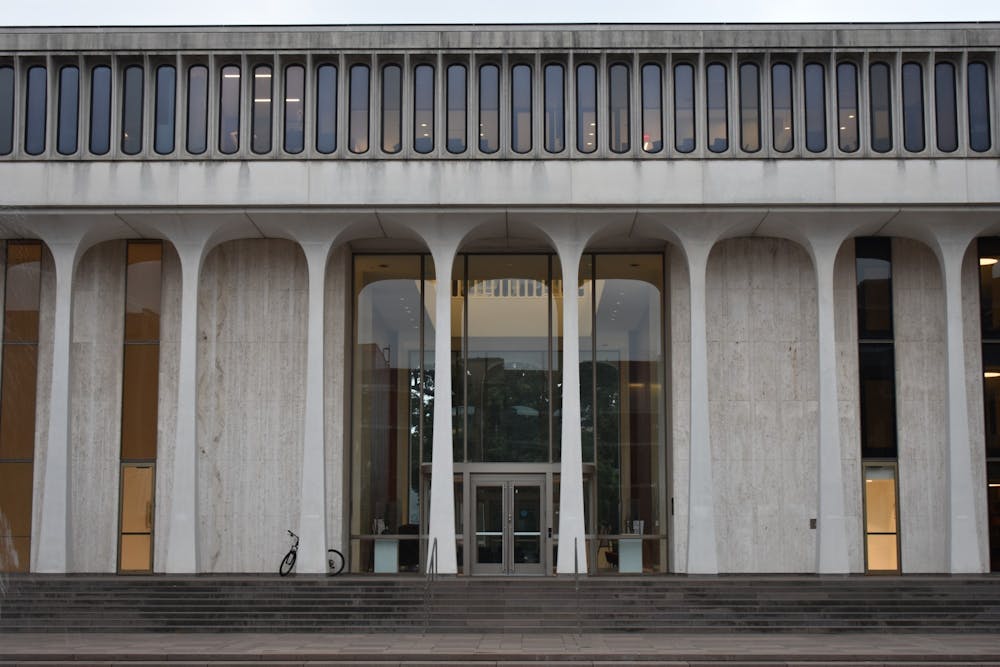Dr. Uyi Stewart, Chief Data and Technology Officer at Data.org, spoke on the global digital divide and the power to use data science for social impact during a campus lecture on Wednesday, Nov. 16.
Titled “Data Science: The New Frontier in Global Health and Development,” Stewart’s lecture considered data science’s capacity to address issues like infectious diseases, financial insecurity, drug treatments, and healthcare access. He also noted the necessity for data science as a field to be more accessible and highlighted Data.org’s initiative to train one million data scientists by 2032 with a focus on diversity, equity, and inclusion.
Stewart said that nearly 2.5 quintillion megabytes — the equivalent of “six Libraries of Congress of data” — are collected in developing countries every day. Much of this data collection is on the lack of access to schooling and healthcare in countries in Africa and South Asia, Stewart said.
However, he contended that there is nowhere near enough data analysis performed. “We are data rich. That’s not the problem. But we are knowledge poor, and that’s the gap,” Stewart said.
Moreover, he noted that there are a number of systemic challenges that prevent us from gaining real knowledge from the vast amount of data to which researchers have access. “Data and data science can be a part of the solution, but not the whole solution, since there are systemic challenges that exist,” he said. “But data science can definitely be a meaningful part of the solution.”
In addition to holding 15 patents and having authored 65 publications, Stewart has worked both in the private sector and with nonprofit organizations such as the Bill & Melinda Gates Foundation in digital applications and data science. Now the Chief Data and Technology Officer at Data.org, a non-profit founded in 2020, Stewart is working to expand access to data science and cultivate “a new class of data scientists that is focused on impact.”
Stewart’s work at Data.org stems from his desire to expand access. “It is time that we truly practice what we preach and bridge the gap, bridge the divide,” Stewart said.
He highlighted Data.org’s initiative to spread data science: “We envision a world where anyone and everyone can use data to solve problems. We have got to find a way to democratize access to knowledge.” According to Stewart, Data.org also serves to act as a “platform for partnerships to help to build the field of data science for social impact.”
He emphasized that the lack of access to resources is an obstacle to reducing the inequity between developing and developed nations, adding that the digital divide that exists between the “Global North” and “Global South” makes it more difficult to extract knowledge and develop solutions. “In the developing world, if we do not embark on the digitization of knowledge, we will never be able to accommodate for the scarcity of resources,” he said.
“What if we are able to create pathways to the digitalization of knowledge for everyone?” he posed. “We could change the lives of 3 billion people.”
The event was held from 4:30 p.m. to 6 p.m. in Robertson Hall.
Bhoomika Chowdhary is a staff writer who often covers University affairs/policy and research. She is also a senior copy editor for the ‘Prince.’ Please direct any corrections requests to corrections(AT)dailyprincetonian.com.









